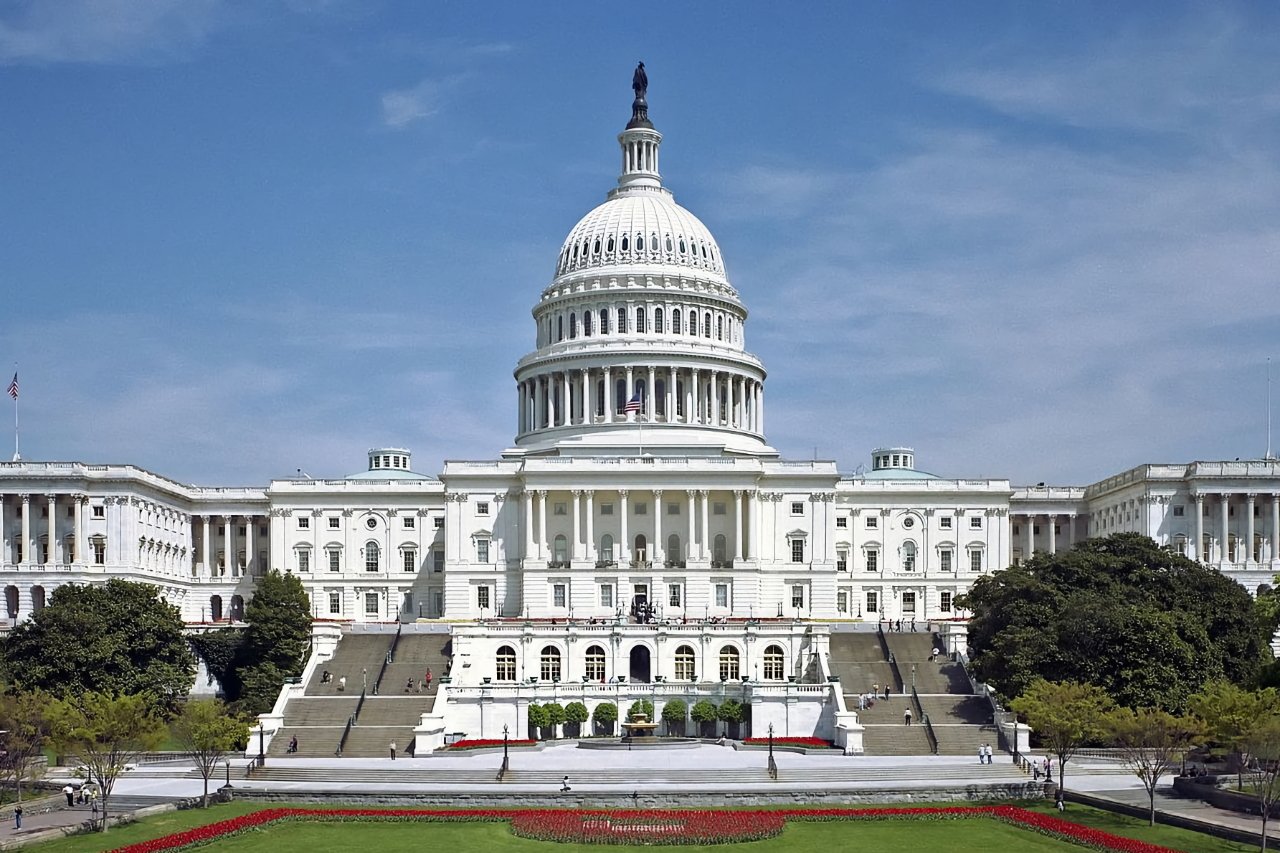Meta, Amazon, and more want 10-year ban on states regulating AI
Big Tech companies including Amazon, Meta, Google, and Microsoft -- but not Apple -- are lobbying to block US states for forming any AI regulation for the next decade.

US Capitol building in Washington, DC -- image credit: US government
The lobbying is being done by trade body Incompas, on behalf of its members, which include major technology firms as well as energy and law firms. Apple is not a member, but it has previously lobbied against similar AI regulation plans in Europe.
According to the Financial Times, none of the four Big Tech firms would comment on the lobbying. But Incompas CEO and former congressman Chip Pickering argues that preventing differing and conflicting AI regulation across the US is essential.
"This is the right policy at the right time for American leadership," he said. "But it's equally important in the race against China."
The lobbying follows Sam Altman's pitch to a Senate hearing in May 2025 that it would be "disastrous" if AI firms were regulated. Specifically, the OpenAI CEO said AI firms should not face safety regulations, nor transparency requirements over where it scrapes its data from.
While AI firms want to profit from other people's work without payment or credit, this particular lobbying is centered on avoiding overly complex regulation.
"You don't want the number one country in the world for innovation to fall behind on AI," said Senator Thom Tillis (R). "If all of a sudden you've got 50 different regulatory or legal frameworks, how can anybody in their right mind not understand that that's going to be an impediment?"
The lobbying has been successful enough to get this provision included in the so-called "One Big Beautiful" bill that was passed by the US House of Representatives. Marjorie Taylor Greene (R), who voted in favor of the act, though, has since admitted she hadn't read it.
"I am adamantly opposed to this and it is a violation of state rights," she has now said in a statement, "and I would have voted no if I had known this was in there."
"We have no idea what AI will be capable of in the next 10 years and giving it free rein and tying states [sic] hands is potentially dangerous," she continued. "This needs to be stripped out in the Senate."
Greene's voting on technology issues she doesn't read is unfortunately not unusual. It's just the latest in years of examples of all parties exhibiting a horrifying lack of awareness of what they are passing laws on.
Republicans are also reportedly trying to use Senate rules to call the act a "budget reconciliation" bill -- which would mean it can be passed without Democratic votes.
Ted Cruz (R) has proposed that states which do not comply with this regulation could be punished. They might face the withdrawing of their billions in federal funding for bringing broadband to rural areas.
There is not, though, consensus amongst the Republican party. As well as Marjorie Taylor Greene's after-the-fact stance, Marsha Blackburn (R) opposes the moratorium because she supports Tennessee's law against unauthorized AI use in the music industry.
Separately, the EU is slowly rolling out its Artificial Intelligence Pact, which consists of voluntary pledges to support safe and responsible development of AI. Mega, Google, and Microsoft have signed the pact, but Apple has not.
Read on AppleInsider

Comments
Companies like Amazon would happily get rid of every human employee, replaced with AI.
Elon the-Nazi-saluter can't wait to put AI in robots to replace humans, put AI in cars to herd people like sheep,... Elon's DOGE actions gave us a taste of what "big tech" thinks of the average person...fire tens-of-thousands for efficiency
Big tech wants to put AI in weapons, use AI to outsmart opponents,...AI in missiles, in drones
Already AI is used to interview candidates for jobs.
We need government regulations to stand-up for humanity.
(1) All AI tasks are assigned a human equivalent and must pay all taxes that a human worker would've earned. The money earned will be used to help those put out of work by AI.
(2) We should create the equivalent of footnotes for AI. These footnotes can be included in text documents, and even embedded in images/video. These AI footnotes would reveal what/how AI was used. This provides transparency to the AI world.
These heavy regulations would undoubtedly slow down AI, but they would also give societies time to keep AI from literally destroying the world.
Weak regulation that gives Big Tech even more of a de facto monopoly power wouldn't serve any real purpose other than to justify that 'regulation' at least exists.
A complete lack of regulation would have dire consequences for just about everyone - except Big Tech and it's industrial partners.
In the consumer realm they will be herded up and fed off just like has happened up to now.
In other areas (in addition to consumers) stringent safeguards must be present and above all enforceable.
in return the tech companies will stay in bed with the government and give them access to all the data they have
you heard it here first